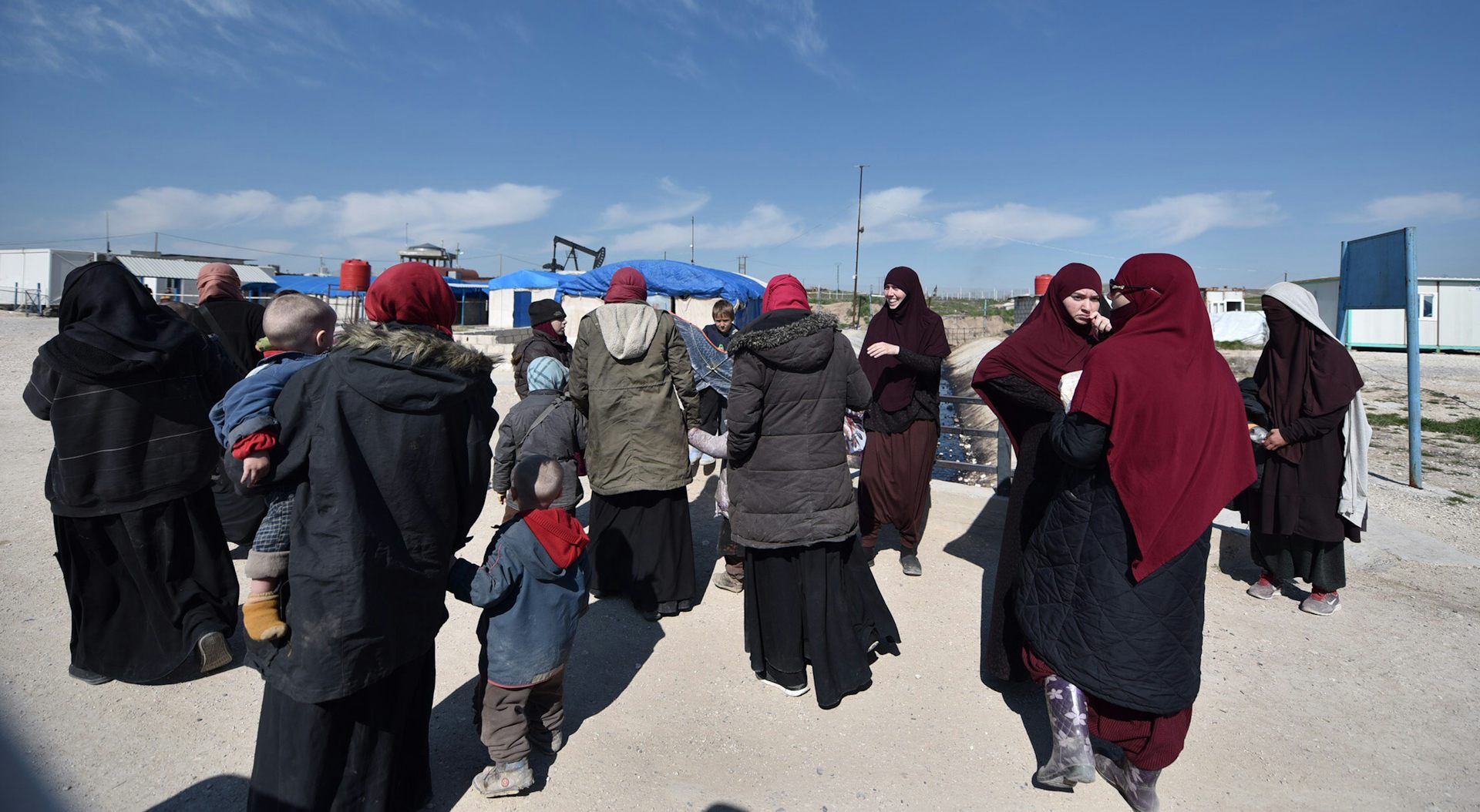(MENAFN- The Conversation) Jack Letts, a man from Oxford who joined Islamic State (IS) and is currently in a Kurdish-run prison in Syria, wasstripped of his British citizenshipby the former home secretary, Sajid Javid, reportedly in one of his final acts before becoming chancellor. In June, Letts admitted in an interviewwith the BBCthat he had been ready to become a suicide bomber and to being an 'enemy of Britain'. He said: 'I made a big mistake.'
Letts has dual Canadian nationality through his father and so has not been left stateless, but Canada said itwas disappointedby the decision to revoke his British citizenship. Two former British ministers have alsospoken out againstthe decision, on the grounds that it sets a bad example and could potentially undermine anti-extremism work. Such reactions may be partly driven by international perception and the potential of damaged relations withCanada, a traditional British ally .
The issue of nationality is crucial. It isillegalto leave a person stateless by stripping them of their citizenship. Crucially, Letts has never been tried in a British court.
His case has similarities with that ofShamima Begum , the British teenager whose citizenship was revoked in February 2019, although her family haslodged an appeal . The decision to revoke her citizenship was partly taken on the basis that she had dual Bangladeshi nationality and so would not be made stateless – but this point has yet to be challenged in court.
No outcry
Begum's case gained widespread media attention, but there was little, if any, public outcry over the decisions to revoke her British citizenship. AYouGov pollin February found that 76% of those surveyed supported the decision. It is early days, and therefore too soon to tell the public reaction to the Letts case.
But why are potentially unjust decisions or actions by governments readily accepted by their populations? It's a question that my colleagues and I have considered as part of our wider researchinto peace and justice .
Our interest in public acceptance of the state's action doesn't ignore the potential difficulties in challenging acts of parliament. These can only bechallenged by judicial review , and on limited EU or human rights grounds. The challenger must have 'sufficient interest' in the outcome – conditions which are not simple to meet – and few would have the legal knowledge to undertake such action.
The public can still mobilise support for reviews or appeals, or make their disquiet known via political protest, orsocial media . But there hasn't been a widespread social media campaign against the UK's decision to revoke British citizenship of IS fighters.
Not an 'ideal' victim
Even if observers doubt the legality or morality of abandoning a fellow citizen in a Syrian camp, they may justify such actions via the technique of what's called ' neutralisation '. The term was originally applied to offenders, but is a technique used to neutralise any guilt we may experience for our action or inaction. It refers to the practice of denying responsibility, appealing to higher loyalties such as UK interests, asserting our own good character, and claiming ourselves to be potential victims – in this case, of terrorism.

Shamima Begum being interviewed in February 2019 by the BBC at a refugee camp in Syria.
https://www.youtube.com/watch?v=ppyDfm-yyl8
The claim by Begum's lawyer that she was avictim of groominggained little public support, perhaps because of a perception that she is not innocent, nor an ' ideal victim '.
When Begum was interviewed by journalists, she showed neither weakness nor repentance and appeared antagonistic to a British way of life, despite her desire to access Britishmedical carefor her son, who later died. Public opinion is scathing of those who reject perceivedBritish valuesand related responsibilities, yet seek the benefits that come from British rights, such as medical care and education.
This linking of rights and responsibilities feeds into wider research showing that citizenship is increasinglyframed in terms of a privilege ,not a right , by those countries stepping up removal of it, and seeking to legitimise doing so.
Fear enables actions to go unchallenged
Both Begum and Letts stoke fears about potential terrorism attacks in Britain,and researchhas long argued that fear enables the restriction of civil liberties.
It's possible that part of the vitriol against Begum is because she's seen as an ' outsider ' – a non-white British Muslim. Such fear of 'the other' can be interpreted asxenophobia . But these fears don't operate in a vacuum.Recent researchalso suggests that young people living in the UK also have extreme fears about terrorism, reportedly fuelled by social media reports on extreme acts.
In a fearful climate, seeing others you believe may harm you can evoke considerable anxiety and animosity. Both these emotions can enable illegitimate actions to go unchallenged. And even those people who have serious concerns about the actions of their government may not publicly protest, offer support, or challenge the decision, perhapsbelieving others will , or fearing repercussions if they do so.

Roj camp in north east Syria has housed wives of IS fighters and their families.
Murtaja Lateef/EPA
If people are challenged about why they didn't speak out about a particular case, they may admit that justice was miscarried and express a hope that the mistake will be corrected on appeal, or claim that thelaw provided for an exception .
While governments may not always keep to the strict letter of therule of law– a fundamental British value – public opinion is often driven less by such concerns, than by emotional, if irrational, responses in perceived emergency situations.
Citizenship
Foreign fighters
Islamic State
Dual citizenship
Shamima Begum
MENAFN1908201901990000ID1098900135
Legal Disclaimer:
MENAFN provides the information “as is” without warranty of any kind. We do not accept any responsibility or liability for the accuracy, content, images, videos, licenses, completeness, legality, or reliability of the information contained in this article. If you have any complaints or copyright issues related to this article, kindly contact the provider above.